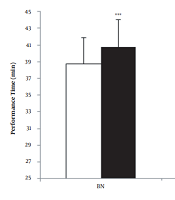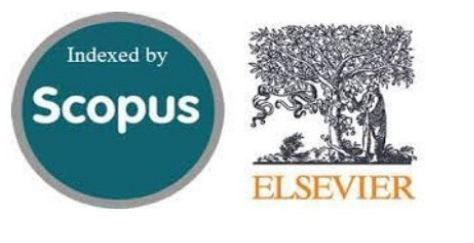Effects of Repeated Low-dose Caffeine Ingestion During a Night of Total Sleep Deprivation on Physical Performance and Psychological State in Young Recreational Runners
Keywords:
Caffeine, Endurance, Physical Performance, Mood, Sleep DeprivationAbstract
Background: Caffeine is frequently consumed by athletes to maintain alertness in conditions of sleep loss. However, the effect of caffeine ingestion during total sleep deprivation during aerobic exercise remains questionable. Objectives: The present study aimed to assess the effects of repeated intake of low-dose caffeine during a night of total sleep deprivation on endurance performance and psychological states. Methods: Twelve recreational runners performed four test sessions in a double-blind randomized order after a placebo or 6 mg/kg of caffeine ingestion after a baseline night (BN) or three doses of 2 mg/kg of caffeine during a night of total sleep deprivation (TSD). At each session, they completed an exhaustive run around a 400 m athletics track and performed the Feeling Scale test. ANOVA with repeated measures followed by paired t-tests was used to analyze the data. Results: In comparison with BN, the TSD condition significantly impaired running performance (P < 0.001). On the contrary, caffeine administration improved endurance running performance (P < 0.001) and increased feeling of well-being (P < 0.05) after TSD night as compared to placebo. Conclusions: Repeated ingestion of low-dose caffeine is an effective way to mitigate the negative effects of total sleep deprivation on endurance performance and mood states.
Downloads








